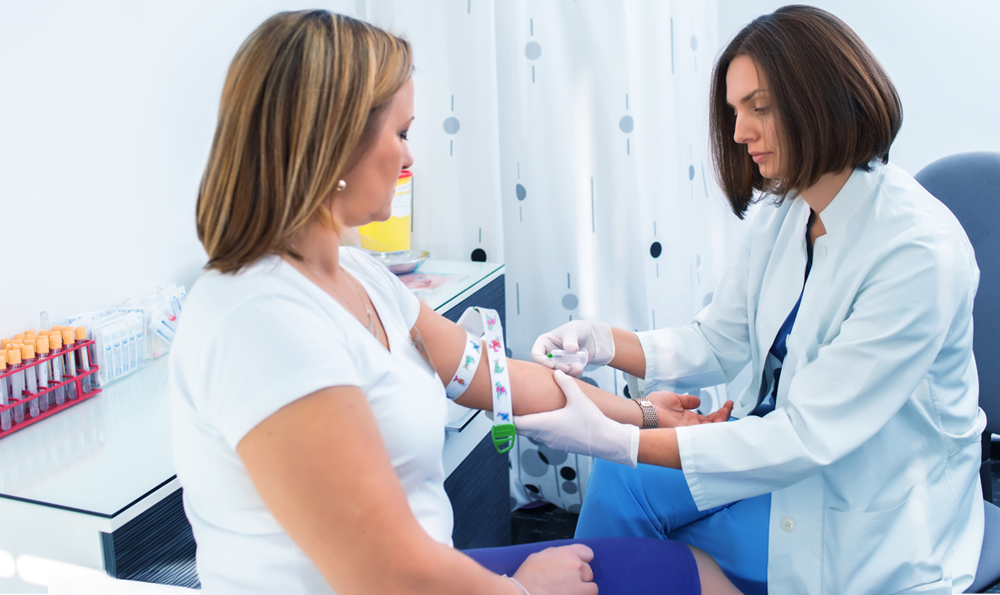Blood tests are key to monitoring health. They diagnose illness, guide treatment plans, and even help prevent disease—but only when the results are accurate.
To help make sure your lab tests aren’t skewed, Luba Rakhlin, MD, an endocrinologist at Atlantic Health System, shares a few tips to know before you head to the lab.
Preparation leads to accurate results
“When you properly prepare for your lab tests, you can feel confident with the results,” says Dr. Rakhlin.
“We need you in a fasted state when we check glucose, lipid panels, or certain hormones. It is the only way to get accurate readings because intake of food and certain supplements can significantly impact your lab results.”
Dr. Rakhlin explains that when a patient’s results seem “off,” most doctors will repeat the test. To avoid blood test redos, here are four ways to prepare for your labs.
1. Fasting
It’s common to fast for eight to 12 hours before getting bloodwork. That means it is best to abstain from food, drinks, and supplements. You should only consume water or seltzer.
2. Hydration
Drinking water while you’re fasting will make it easier to locate veins for the blood draw, improve blood flow during the draw, and ensure ample fluids for a urine sample.
3. Timing
Certain blood tests such as cortisol can vary based on the time of day. Scheduling bloodwork in the morning before you eat or start your day is always a good idea.
4. Medications and supplements
Many prescriptions, over-the-counter medications, and supplements directly affect bloodwork. To minimize interference, make sure your doctor knows what you’re taking—and how much.
Supplements that cause false highs and lows
Dr. Rakhlin explains that one popular supplement called biotin (vitamin B7), which is touted for hair and nail growth, can lead to false results if you take more than five grams daily.
“In this case, your labs may show very high or low thyroid levels, which can lead to inappropriate medical management,” says Dr. Rakhlin.
She offers another example, explaining how high doses of vitamin C supplements can interfere with lipid results and show lower levels of both LDL (the “bad” cholesterol) and triglycerides.
“If you are taking any supplements with high doses of biotin or vitamin C, we recommend holding these supplements for 42 to 72 hours before getting bloodwork,” she says.











